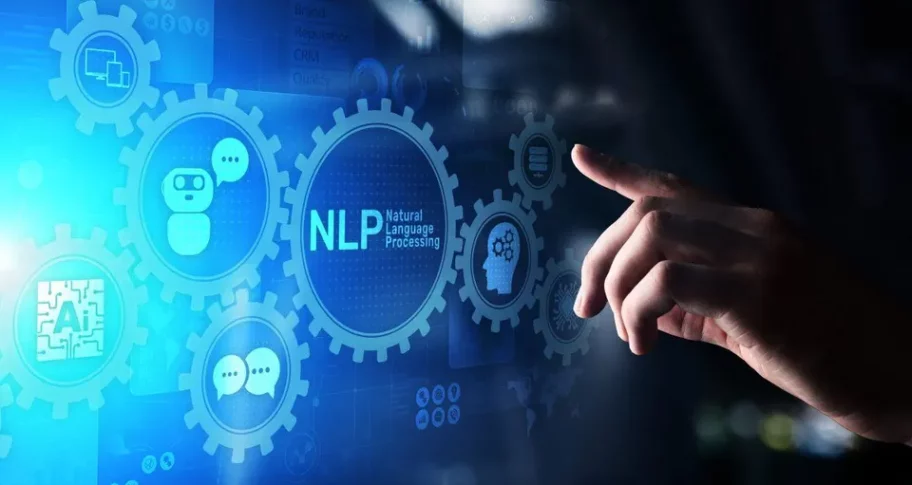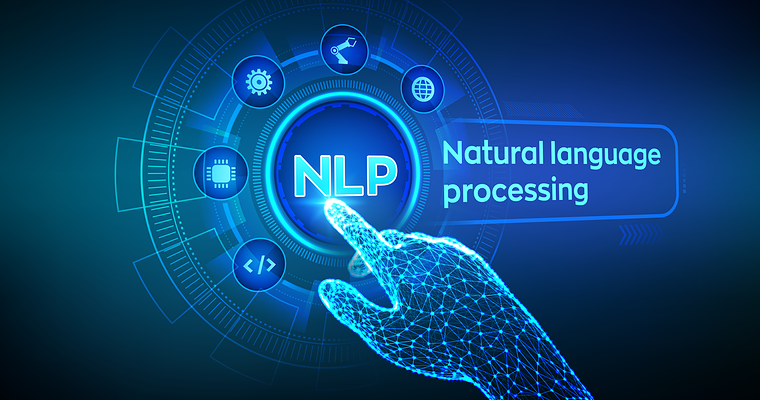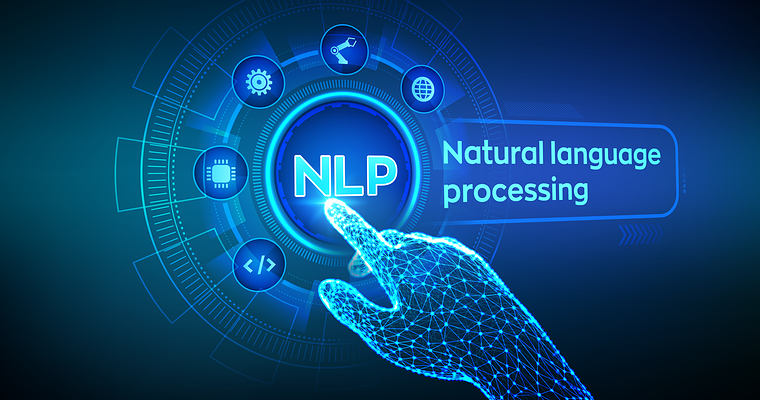Ever wondered how call centers and contact centers have become so tech-savvy? The secret sauce is Natural Language Processing (NLP) along with speech analytics and conversational AI. In the simplest terms, these technologies help machines understand human language, revolutionizing customer service. They're game-changers for businesses, improving communication with customers and making sense of their needs through language analysis.
Customer service isn't just about answering inquiries anymore. With conversational AI and machine learning software, service representatives can decode customer speech, anticipate questions and provide personalized service options in a call center setting. With NLP in customer support, it's like having a super-powered department where employees can search and analyze information at lightning speed using a machine learning system. So next time you contact customer care and get spot-on assistance from service agents or supervisors, remember - there's probably some smart conversational AI and machine learning system working behind the scenes!

Understanding Natural Language Processing Basics (NLP)
What's NLP?
Natural Language Processing, or NLP as it is often called, is a branch of artificial intelligence that deals with the interaction between computers and humans through language, often referred to as conversational AI. It's all about teaching machines how to understand and interpret human language in a valuable way, which includes analyzing customer conversations and applying speech analytics. The ultimate goal of NLP is to read, decipher, understand, and make sense of human language in a meaningful way, thereby enhancing its skills in communication.
NLP involves several key elements:
- Language processing: This involves breaking down sentences into words or phrases (known as tokens) for easier understanding.
- Text analysis: This includes identifying parts of speech, entities in text like people or places, sentiment analysis (is the text positive or negative?), and more.
- Semantic analysis: This involves understanding the meaning behind those words and sentences.
The power of speech and sentiment analysis, as well as conversational AI in customer experience, lies in their ability to use natural language processing to extract relevant information from large volumes of customer care text data.
Interpreting Human Language for Machines
To make sense of human language and interpret customer care interactions, speech analytics uses different techniques. One key method is the use of language models, which can assist agents in understanding queries. These are systems trained on a large amount of text data, including common questions. They learn patterns in the language such as common phrases or sentence structures. When given new input (like a user query), they use this knowledge to predict what comes next.
For instance:
- If you query "How's the weather" on a dialpad, an AI-powered speech analytics system, utilized in customer care, might suggest "in New York?" because it has learned that this is a common continuation.
- If you say "Book me a flight" to Dialpad's AI customer service, it might ask "Where are you flying to?" because its customer care knows this information is needed to complete your request.
This process makes our interactions with AI systems, specifically speech analytics, more natural and intuitive for customer care. It aids agents in delivering better customer service.
Role of AI & Machine Learning
Artificial Intelligence (AI) plays an essential role in enhancing the capabilities of Natural Language Processing, particularly in the context of a dialpad and customer service calls. With AI algorithms, systems can better understand context, infer intent from speech or text inputs, translate languages accurately, and improve call handling among other tasks.
AI and machine learning further elevate Dialpad's customer service abilities by allowing systems to learn from call experience without being explicitly programmed. For example...
- A dialpad chatbot learns over time how best to respond to certain call queries based on past interactions.
- An email filter learns what constitutes spam by analyzing which emails get marked as such by users, including those that call for attention with misleading information.
In essence:
- AI provides the brainpower
- Machine learning offers adaptability
- NLP gives these AI technologies their voice - enabling them to comprehend and converse in human language effectively during a call.
By understanding these basic principles, we can appreciate how crucial AI and Natural Language Processing are in customer support scenarios. Efficient communication between humans and machines, powered by AI, can significantly enhance service delivery.
NLP In Customer Support
Understanding Sentiment through NLP
NLP, or Natural Language Processing, is a game-changer in the customer support world. It's like having an extra pair of ears that can tune into what customers are really saying. By analyzing customer feedback and complaints, NLP can pick up on the underlying customer sentiment. Is your product hitting the mark? Are customers feeling valued? With NLP, you get more than just answers - you get insights.
For example, consider a scenario where you receive feedback like "The product was great but it took ages to arrive". A simple keyword-based analysis might flag this as positive because of the word 'great'. But AI-powered NLP digs deeper. It understands that 'took ages' indicates dissatisfaction with delivery times. This allows businesses to address specific issues and enhance overall customer satisfaction through AI insights.
Speeding Up Responses with NLP
Let's face it - nobody likes waiting around for answers. In today's fast-paced world, efficient service is key to a satisfying customer experience. That's where NLP in customer support steps in again.
Imagine having an AI system that can automatically sort through incoming queries and prioritize them based on urgency or relevance. Or one that can provide fast answers to common questions without human intervention! These aren't sci-fi fantasies anymore - they're very real possibilities powered by AI and NLP.
A quick response time doesn't just mean happier customers; it also means more efficient use of resources. So instead of spending hours sifting through emails or surveys, your support team can focus on solving complex issues and creating value for customers.
Personalizing Experiences with NLP in Customer Support
Last but not least, let's talk about personalization in the context of AI. We all know how good it feels when AI remembers our preferences or makes relevant recommendations – it shows they value us as individuals.
AI-driven NLP brings this level of personalization to customer support by understanding each customer's unique needs and preferences from their past interactions and feedbacks. This means more relevant product recommendations, more personalized responses, and ultimately – happier customers thanks to AI!
To sum up:
- Utilize AI and NLP to comprehend the genuine customer sentiment behind customer feedback.
- Leverage AI-powered automated systems enhanced by NPL for faster response times.
- Provide personalized experiences based on individual needs and preferences using insights gained from NPL analysis.
It’s clear: If you want to improve the satisfaction of your customer, integrating Natural Language Processing into your strategy is a no-brainer!
Use of NLP In Chatbots and Live Support

The Role of Chatbots in Customer Support
Chatbots, powered by conversational AI, have become essential tools for providing 24/7 customer support. These artificial intelligence software are designed to mimic human conversations and provide instant responses to customer queries. Imagine this - it's 2 am, and you're struggling with a software issue. Rather than waiting for business hours to lodge a support ticket, you can interact with a chatbot that's available round the clock.
- Case Study: Dialpad reported a significant reduction in their response time after integrating chatbots into their customer support system.
- Stat: According to Gartner, by 2022, 85% of customer interactions will be handled without a human agent.
Live NLP in Customer Support
Live chat is another area where AI and NLP shine together. With real-time problem-solving skills, live agents use AI-enhanced NLP to understand text data from customers better. The use of AI-powered voice assistants has also been on the rise in live support scenarios. Picture this - you're having trouble setting up your new device and need help immediately. You start a live chat session where the agent uses AI and NLP-powered tools to understand your problem and guide you through the solution process.
- Example: A customer types "can't connect printer" into live chat. Using NLP, the system recognizes keywords like 'connect' and 'printer', enabling the agent to offer relevant solutions quickly.
- Social Proof: Many businesses have noted improved efficiency after implementing NLP in their live chat systems.
Efficiency Boost with Automated Responses
The power of AI-driven automated responses via chatbots cannot be overstated. By leveraging AI, knowledge bases, and previous interaction data, chatbots can provide suitable answers or direct customers to suitable agents based on their queries.
- Customer asks: "How do I reset my password?"
- Chatbot responds: "Sure! Here are the steps to reset your password: ..."
- If needed, the AI bot creates a support ticket directing it towards an agent specializing in account issues.
This AI approach not only saves time but also ensures that each support ticket lands on the right desk from the get-go!
So whether it's through always-available chatbots or real-time assistance from live agents using voice assistants, using NLP in customer support workflows can significantly enhance efficiency while ensuring customers get swift help whenever they need it.
Real-world Applications of NLP in Customer Support
Case Study Examples
Let's dive right into some real-life examples of how Artificial Intelligence (AI) and Natural Language Processing (NLP) are revolutionizing customer service. In the telecom sector, for instance, companies are using AI and NLP to analyze customer conversations and understand their needs better. Take the case of a leading telecom company that implemented AI-driven NLP solutions in its call center. The result? A whopping 30% reduction in handling time for customer calls!
Similarly, e-commerce giants aren't far behind. They're leveraging NLP to improve customer interaction on their platforms. An example is an online retailer which integrated text applications with NLP capabilities into its chat support system. This move led to a significant decrease in response times and increased customer satisfaction levels.
Broad Application Areas
From call centers to social media platforms, AI-powered NLP has found wide-ranging applications across various sectors.
- Call Centers: Analyzing phone calls in real-time to provide immediate assistance.
- Contact Centers: Automating routine inquiries through text applications.
- Social Media: Monitoring customers' sentiments towards products or services.
Impact on Business Metrics
The implementation of AI-powered NLP solutions isn't just about enhancing customer experience; it also positively impacts essential business metrics.
- Improved Efficiency: Customer service teams can handle more queries in less time.
- Reduced Costs: Automation reduces the need for large customer service departments.
- Increased Sales: Better understanding of customers' needs can lead to personalized offers, thus driving sales.
So you see, whether it's making sense of thousands of phone calls at a busy contact center or providing instant responses on social media platforms, NLP is doing all the heavy lifting while we sit back and reap the benefits! Ain't technology grand?
And this ain’t just talk – these are proven applications where businesses have seen tangible results by integrating NLP in customer support processes. Can you imagine what else could be possible with this technology? Let’s dive right in!
Leveraging NLP for Business Data Analysis
Text Analytics and Customer Interactions
Many organizations are now leveraging the power of NLP in customer support. The value lies in using text analytics to gain insights from customer interactions data. Think about it, every time a customer interacts with your business - be it through queries, research, or billing issues - they're sharing qualitative data that can be mined for insights.
For example, speech analytics can help companies identify common phrases or words used by customers when discussing specific products or services. This information can then be used to improve product descriptions, marketing efforts, and even customer service scripts.
Predictive Analysis using NLP
The magic doesn't stop at simple text analysis though. Using NLP techniques, we can perform predictive analysis based on past conversations. Imagine being able to predict a customer's needs before they even reach out! That's the power of NLP.
Consider this: A company tracks account interactions over time and uses NLP to analyze the content of these interactions. They might find patterns indicating that customers who inquire about certain features are likely to upgrade their accounts within the next three months. Armed with this knowledge, the company can proactively reach out to these customers with personalized offers.
Semantic Analysis for Pattern Identification
But wait, there’s more! By applying semantic analysis – another key feature of NLP – companies can identify patterns and trends that would otherwise go unnoticed.
Semantic analysis involves understanding the meaning behind words and sentences in context. It's like having a superpower that lets you see beyond individual words and understand deeper themes and sentiments.
Here's an example: Let's say many organizations receive feedback about their customer support being 'slow'. On its own, 'slow' is just an adjective describing speed. But semantic analysis helps us understand what 'slow' really means here - is it slow response times? Slow resolution of issues? Or perhaps slow access to support channels? Understanding these nuances enables businesses to take precise corrective actions.
Future of NLP: Enhancing User Experience
Voice Recognition and Emotion Detection
Imagine a day when your voice is all you need to interact with technology. That's the future we're heading towards, thanks to advancements in NLP (Natural Language Processing). The benefits are immense - from improving productivity of human agents to enhancing user experience on a website. For instance, think about how much time you could save if the search bar on a website understood your spoken queries.
A key component of this transformation is voice recognition. Using reinforcement learning algorithms, systems can learn to understand and respond to human speech more accurately over time. This isn't just about understanding words, but also the sentiment behind them. Emotion detection capabilities mean that systems can pick up on subtle cues in tone and pitch, providing a more empathetic response.
Multilingual Support Capabilities
Another noteworthy development in NLP is anticipated improvements in multilingual support capabilities. It's no longer enough for technology to understand one language; it needs to be multilingual. Advanced algorithms are being developed that can accurately translate and interpret multiple languages, breaking down barriers in communication.
This doesn't just benefit the person using the technology but also businesses that want to expand globally. By offering support in multiple languages, they can reach out to a wider audience and provide better customer service.
Virtual Assistants and Smart Devices
The potential advancements don't stop there. As NLP becomes more sophisticated, it's going to revolutionize our interactions with virtual assistants and smart devices.
Virtual assistants like Alexa or Siri will become even smarter, able to understand complex commands or questions with ease. They'll also be able to carry out tasks more efficiently thanks to reinforcement learning techniques.
Smart devices will become truly "smart", capable of understanding human speech and responding appropriately. Imagine telling your coffee machine what kind of coffee you want without having to press any buttons – that’s the kind of convenience we’re talking about!
It’s important here though not just take these points at face value but look at real-world examples too:
- Google Assistant now uses a transformer-based model which reduces errors by 40%.
- Amazon Echo uses an advanced sentiment analysis algorithm which allows it respond appropriately based on the mood detected.
- Companies like Microsoft are investing heavily into multi-language support for their products, including simultaneous translation features in Skype.
Automating Common Tasks with NLP
Streamlining Repetitive Tasks
Imagine a world where your customer support team doesn't have to answer the same questions about order status or FAQs day in and day out. Sounds like a dream, right? Well, welcome to the reality of natural language processing (NLP) in customer support.
Machine learning software can take over these repetitive tasks, using NLP to understand and respond to customers' queries. You know how you train your dog to fetch the ball? It's kind of like that - only this time, you're training a machine learning system.
- FAQs Handling: A tool can auto-respond to common queries such as "What is your return policy?" or "How do I reset my password?".
- Order Status Updates: Another tool can route requests for order updates directly to an automated response system providing real-time information.
Reducing Manual Intervention
Let's face it; no one likes doing mundane tasks. Especially not when they could be focusing on resolving complex issues or strategic planning initiatives. That's where NLP comes into play.
With task automation strategies involving NLP applications, we're reducing manual intervention while maintaining high-quality service standards. Think of it as having an extra set of hands on deck, ready to take care of all those pesky little tasks that eat up so much time.
Boosting Productivity Levels
Now that we've got those routine tasks taken care of by our trusty machine learning tools, what happens next? Your team is free! Free from the chains of monotonous tasks! They now have more time for:
- Complex Issue Resolution: With more time at their disposal, your team can focus on resolving intricate problems that require human intervention.
- Strategic Planning Initiatives: Your organization's customer service department can spend more time brainstorming and implementing strategies for improvement.
Incorporating NLP in customer support isn't just about making life easier for your team - though it does that too! It’s also about boosting productivity levels across the board and ensuring high-quality service standards are maintained consistently.
So there you have it - automating common tasks with NLP is like having your cake and eating it too! You get a streamlined process with less manual intervention and boosted productivity levels – all thanks to some smart machine learning software doing its thing behind the scenes.
Impact of NLP on Customer Support

NLP is a game-changer in the customer support landscape, seriously boosting satisfaction levels. Remember when you had to wait forever for a rep to answer your queries? Not anymore! With NLP-powered chatbots, you get instant responses and solutions. And we're not just talking about pre-programmed answers here; these bots understand your language and context.
NLP-powered self-service AI and other automated channels like online FAQs, knowledge bases, and conversational AI can give your customers the answers they need, 24/7.
Businesses are leveraging NLP to analyze data like never before. They can now dig deep into customer feedback and uncover insights that were previously hidden in unstructured data (https://www.datamation.com). This way, they can tailor their services better, enhancing user experience big time.
The future of customer support looks exciting with NLP around. Imagine automating tasks that once needed human intervention - it's happening already! You may have noticed how some common tasks are getting done faster than before; that's NLP working behind the scenes.
So what's stopping you from jumping on the bandwagon? Harness the power of NLP for your business today!
FAQS
How does NLP improve customer satisfaction?
NLP improves customer satisfaction by providing quick and accurate responses through AI-powered chatbots. It understands the context of queries and provides relevant solutions, reducing waiting times significantly.
Can I use NLP to analyze my business data?
Absolutely! With NLP, businesses can analyze unstructured data such as customer feedback or reviews to gain valuable insights about their services or products.
What kind of tasks can be automated using NLP?
Tasks like answering common queries, booking appointments, sending reminders or updates can be easily automated using NLP technology.
How will adopting NLP enhance user experience?
By providing instant support and personalized interactions, users enjoy a seamless experience which in turn enhances their overall satisfaction with your service or product.
Is implementing an NLP system expensive?
While initial costs might seem high, the long-term benefits such as improved efficiency and customer satisfaction make it a worthy investment for most businesses.

Article by
Titus Mulquiney
Hi, I'm Titus, an AI fanatic, automation expert, application designer and founder of Octavius AI. My mission is to help people like you automate your business to save costs and supercharge business growth!
